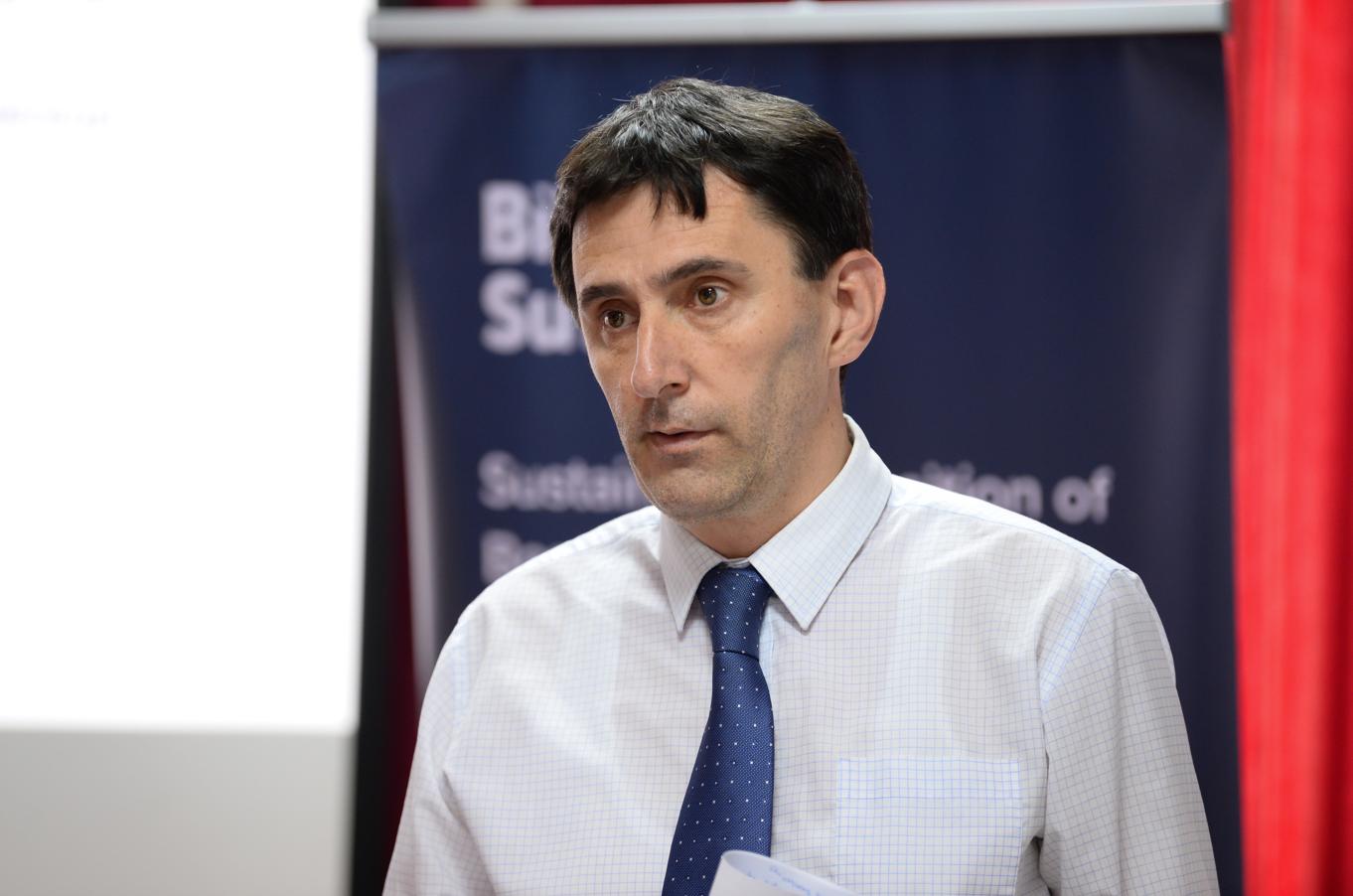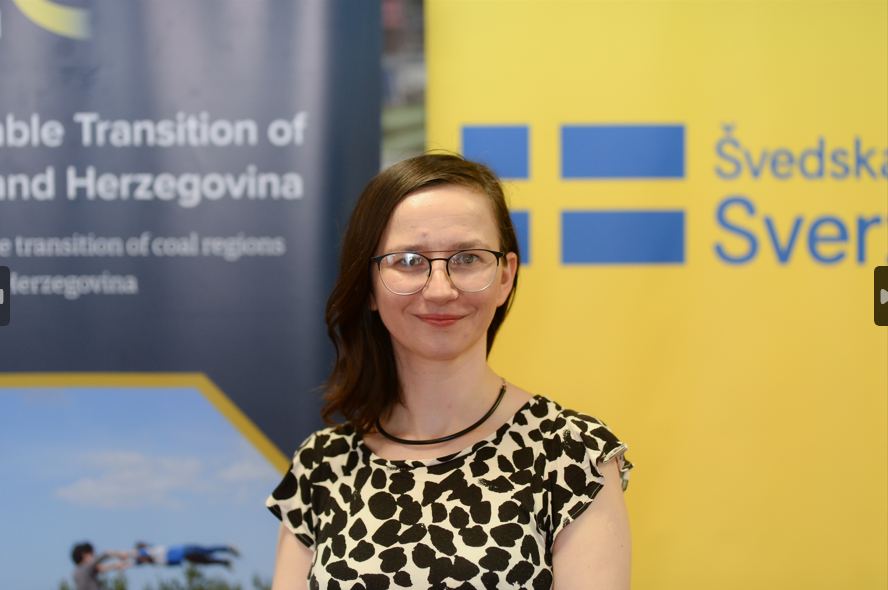 The second consultation meeting on the Transition Plan for sustainable development. Photo: Foto Aljić.
The second consultation meeting on the Transition Plan for sustainable development. Photo: Foto Aljić.
 The second consultation meeting on the Transition Plan for sustainable development. Photo: Foto Aljić.
The second consultation meeting on the Transition Plan for sustainable development. Photo: Foto Aljić.
Today, the city of Živinice hosted the second consultation meeting within the BiH SuTra programme, as part of the process to develop the Operational Plan for sustainable transition in the city.
The meeting aimed to engage a broader group of stakeholders and focused on presenting detailed short-term activities planned for 2025-2027, which are integral to the draft Transition Plan. The proposed short-term activities were outlined for each of the five development pathways: decarbonization (energy, climate, and sustainable transport), circular economy, pollution reduction, sustainable agriculture, and nature protection and biodiversity, taking into account the characteristics of this region.
The city of Živinice has a prime geotraffic position, especially in terms of its transport network, and the potential has not been fully utilized in recent times. Therefore, the topic of sustainable transport attracted special attention during the meeting. "The existing problems of the traffic system in Živinice cannot be solved with the same level of thinking that created them. A decarbonized, smart, and sustainable traffic system in Živinice does not necessarily imply significantly higher costs and financial investments. However, it requires significantly greater involvement from the science, and good practice, as well as smart solutions that already exist to a certain extent," said Mirza Berković, assistant professor from the Faculty of Traffic and Communications at the University of Sarajevo and an expert in the development pathway decarbonization - sustainable transport within the BiH SuTra programme.

Mirza Berković, assistant professor from the Faculty of Traffic and Communications at the University of Sarajevo and an expert in the development pathway decarbonization - sustainable transport within the BiH SuTra programme. Photo: Foto Tomić, Bijeljina.
Berković pointed out that the team for the decarbonization development pathway noticed several systemic problems in road, railway, and non-motorized traffic, as well as in the traffic culture of Živinice's participants. "Based on the analysis of the current situation, we have proposed a series of useful measures and activities to start addressing these existing problems. In the current phase, we focus on short-term measures that could offer an initial effect, while in the second phase, we propose certain medium- and long-term measures that require larger investments and more time," added Berković.
Citizens can contribute with their comments and recommendations to ensure that the set goals align with their real needs and are realized.
The inclusion of socially vulnerable and marginalized groups in the decision-making process and policy creation is key to a just transition that benefits all citizens. Therefore, the BiH SuTra programme has integrated the aspects of gender, equality, social equity, and poverty (GESEP) into the transition plans of the municipalities of Banovići, Breza, Ugljevik, and the city of Živinice.

Alma Midžić, consultant for GESEP issues within the BiH programme. Photo: Foto Tomić, Bijeljina.
"A sustainable transition must also include the fight against poverty to be successful. A just transition must not leave out vulnerable groups, such as poor households and marginalized individuals. It is important to ensure that energy efficiency measures are available to everyone, especially socially disadvantaged groups. Due to often lower incomes, care responsibilities for children and the elderly, and the impact of energy inefficiency on women's health, this population is at greater risk of energy poverty. According to data from non-governmental organizations, single mothers are in the most difficult position in Bosnia and Herzegovina. As many as 58% of mothers in recent years have been unable to pay bills for housing and utilities, and 42% have stated that they are occasionally on the verge of starvation because they have no money for food," said Alma Midžić, consultant for GESEP issues within the BiH programme.
Representatives of the City of Živinice are encouraged to submit their feedback on the presented activities by 1 July 2024. Their inputs will be crucial in shaping the final document, the Transition Plan for the local community.
Transition plans for all four local self-government units (Banovići, Breza, Ugljevik, and Živinice) will be comprehensive and participatory documents aimed at achieving visions that were defined in 2023. These plans set ambitious yet achievable long-term goals (until 2050), medium-term goals (until 2035), and short-term goals (3 years), along with measures to enhance societal sustainability and improve environmental and living conditions in Bosnia and Herzegovina's coal-rich regions.
Following successful consultation events in Breza, Banovići, and Živinice, the final event is scheduled for tomorrow, 21 June 2024, in the municipality of Ugljevik.
Discover the News and Updates section, delivering the latest updates and insightful content across various topics. Stay informed with most recent news articles, reports, and publications, of the BiH SuTra project.